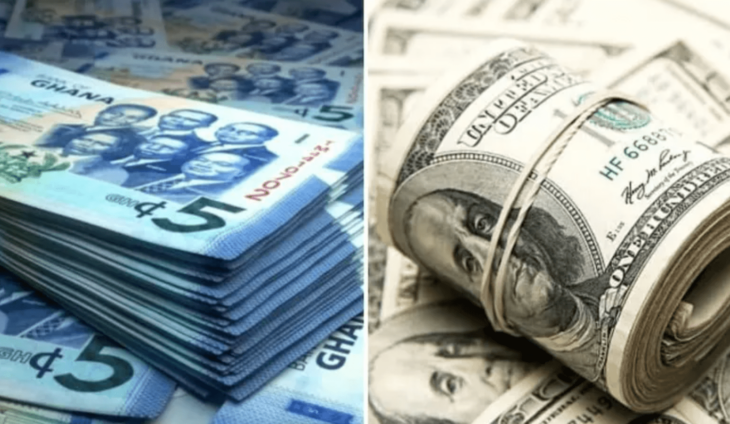Dr Daniel Abankwa: If the fundamentals are weak: The market’s excesses must be reined in

"If the fundamentals are weak, the exchange rate will expose you." These were the remarks of Ghana's Vice President, Dr. Mahamudu Bawumia, prior to the 2016 elections in Ghana.
Today, in a dramatic turn of events, the exchange rate has indeed exposed the New Patriotic Party (NPP) government. The cedi is currently under siege from major international trading currencies, and conversations are gravitating toward the need to control cement prices with a proposed Legislative Instrument (L.I.) led by the sector Minister, Kobina Tahir Hammond.
The calls for price controls on cement are not just needful; they are overdue. But let's not stop at cement prices. Who among us is not alarmed by the daily price hikes at the community grocery shops and markets in today’s Ghana?
It is not a mystery that businesses are driven by the desire for profit, whether short-term or long-term and with the 23.2% March inflation rate, partly induced by the exchange rate, prices of goods would not stay the same. However, at the community grocery markets, it is an eyesore to witness prices increasing at exorbitant rates, at times, daily.
A random trip to the Makola, Kaneshie, or Kejetia markets to purchase a common plantain can bring you to tears, and woe betide you if you question the logic underpinning the high prices.
The myriad of reasons you will be bombarded with will bring you to the point of realization where you will be compelled to relate to the concerns of the ordinary Ghanaian.
The challenge is even compounded by the unequal distribution of wealth in the system. If one's economic situation prevents them from patronizing a particular product selling for an unreasonable price, the next individual will pay for the product without a second thought. This invariably fuels price gouging to the detriment of the low-income class, whose salaries or wages are already being drained by the landlord who increases their rent and blames it on the price of cement and the commercial vehicle driver who increases their fare and blames it on the rising cost of fuel, bad roads, or at times, traffic congestion.
The least the government can do in the interim is intervene and regulate prices to ensure that the average Ghanaian is not made to be disproportionately battered by the current economic crisis. If manufacturers and producers continue to stifle or oppose the passage of this price control bill, then they should be ready to be transparent about the methods that go into their pricing.
If price controls seem too extreme for a market economy like Ghana's, there could be some form of regulation or monitoring mechanism to ensure that businesses, not only ones in the cement manufacturing industry, do not take undue advantage of the current economic situation. The L.I., as is being purported, should include a piece of extensive state machinery meant to temporarily check prices of all goods and even services if a long-term state-mandated price control mechanism may seem too harsh for private actors in the market. Such a provision will check price gouging.
Yes, it may be a knee-jerk approach and would not solve the structural challenges plaguing the Ghanaian economy, but the call for the state to intervene to ensure that market players play by the rules is genuine.
The next crucial step for the government should be the dismantling of monopolies and oligopolies across various sectors of the Ghanaian economy. This should not only target cement manufacturing oligopolies but also the perishable and non-perishable goods cartels at the Makola market and similar entities.
Scholars argue that in industries dominated by a few powerful players, prices are essentially controlled by these private entities rather than being regulated by accountable public authorities.
In today's global economy, market dominance among a handful of corporations stifles innovation, competition, and consumer choice.
For instance, in the communication sector, where high internet charges persist, consumers often have limited alternatives due to the stronghold of a few major providers.
Similarly, large corporations controlling significant shares in the manufacturing sector can dictate terms that may not be in the best interest of smaller competitors or ordinary Ghanaians.
This concentration of economic power impacts pricing and potentially limits opportunities for new entrants and smaller businesses to thrive. The urgency of dismantling these monopolies and oligopolies cannot be overstated.
Price controls are not foreign to even regulated capitalist economies in the developed world. As natural monopolies with the ability to determine rates freely and increase their profit margins, public utility companies in the United States have their maximum rates or price ranges regulated by government agencies. Similarly, in the realm of rental properties, some municipalities enforce rent control laws to restrict the maximum rent landlords can charge or the rate at which rent can escalate.
Hence, discussions about abandoning the L.I. for its anti-market tendencies and undertones are neither here nor there. Others have also cited Venezuela to demonstrate the unworkability of price controls in the Ghanaian context.
However, they missed the mark that Venezuela largely failed to amass the power of the state to tackle smuggling and black-market emergence engendered by the price controls.
In the case of Ghana being a market economy, I would advocate for limited government regulation to check the pricing of goods and the market’s excesses, especially at the micro level, but only as an interim measure as the economy gets back into shape.
*****
The author, Dr Daniel Abankwa is an Assistant Professor of Political Science at Western Carolina University.
Source: MyJoyOnline
























































